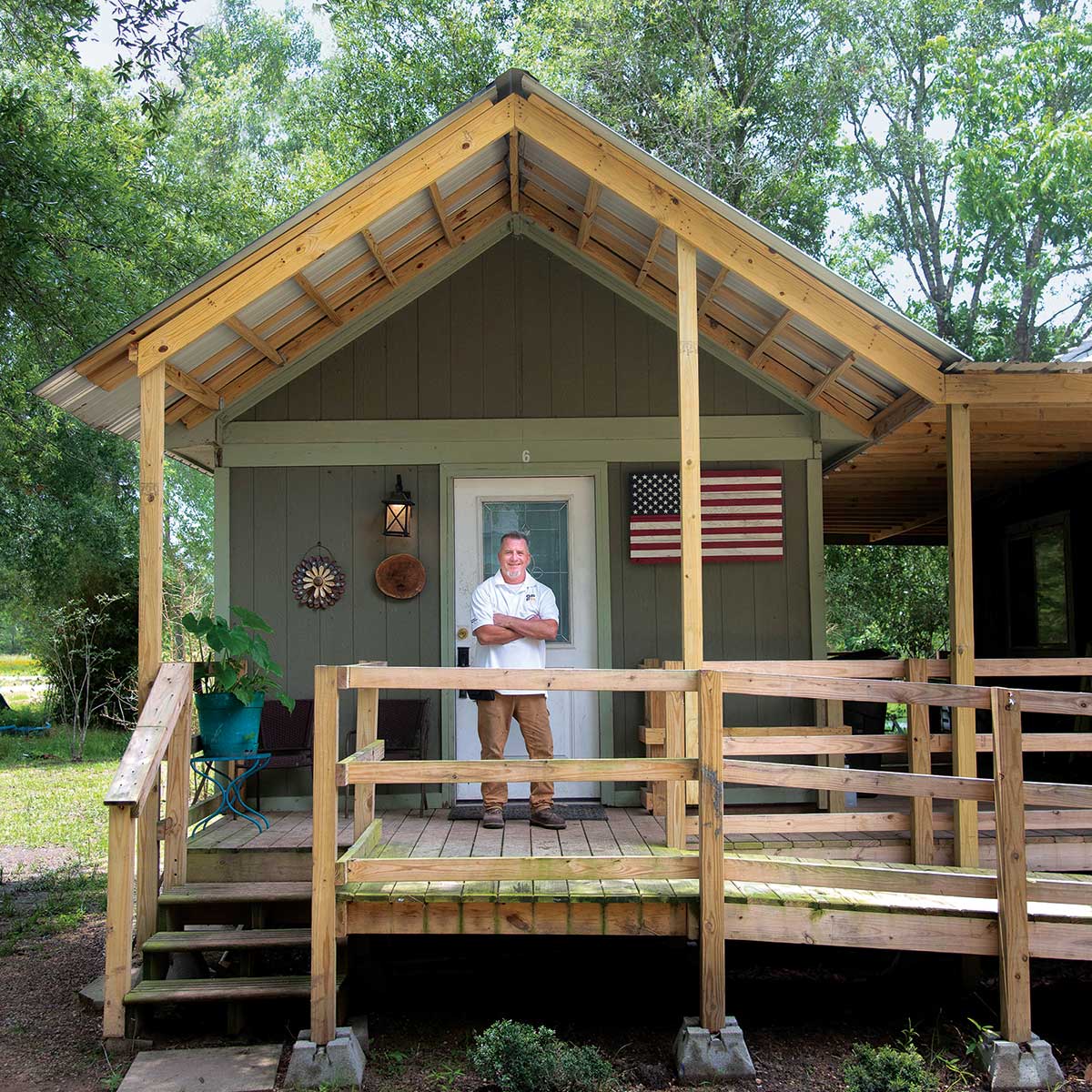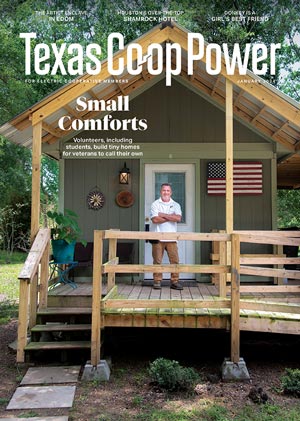“What the heck are you doing?”
The sharp sound of his girlfriend’s voice jolted TJ Phillips awake. But the bigger shock came when he opened his eyes.
“I had my knee on her neck,” says Phillips, shaking his head. “And I was going through the motions of putting flex cuffs on her. She laughed it off after I explained that I’d been dreaming about being on active duty again. But I wasn’t laughing. I knew I needed help.”
Phillips, an Army sergeant who served 1991–99 and was honorably discharged, says he made an appointment with Veterans Affairs to address his post-traumatic stress disorder. But he felt like he was too young to be on all the medications they prescribed.
Instead, as many do, he turned to alcohol. And he eventually decided to live in his truck so he could save money. Ten years and five DWIs later, he was in the Montgomery County jail, awaiting a trial that was certain to yield an extended prison sentence, when he got the news that his arresting officer had suddenly died. He was free to go.
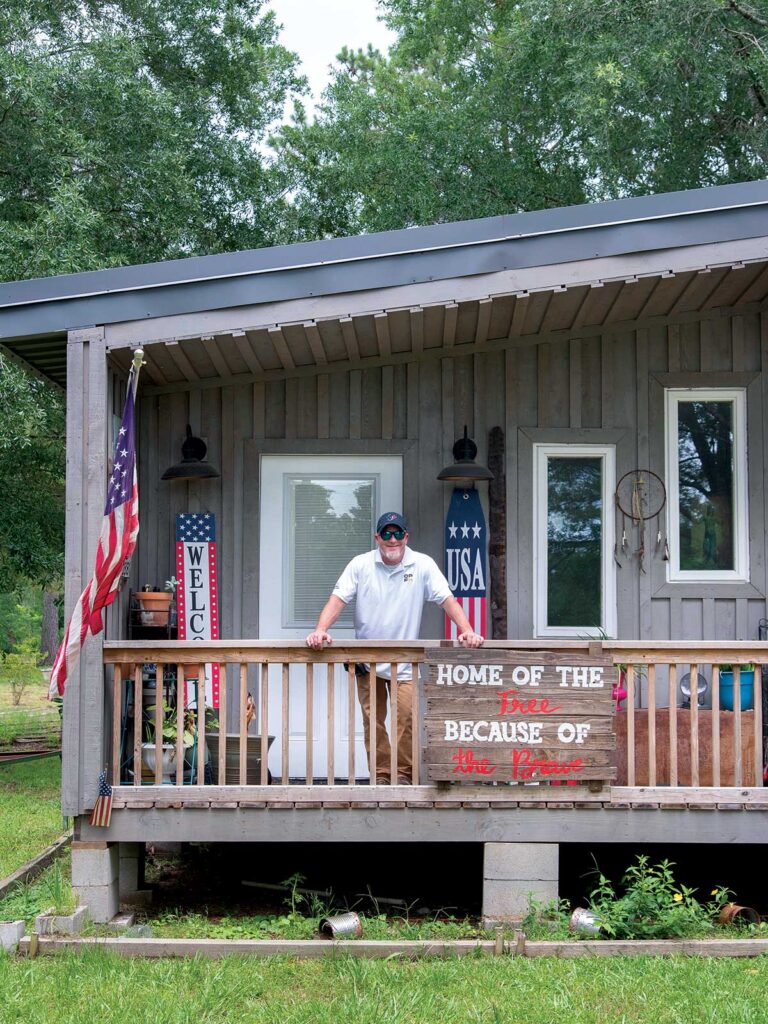
Langetree Retreat and Eco Center’s community of tiny homes and assistance has helped change TJ Phillips’ life. “Everything I need to get healthy again is right here.”
Laura Jenkins
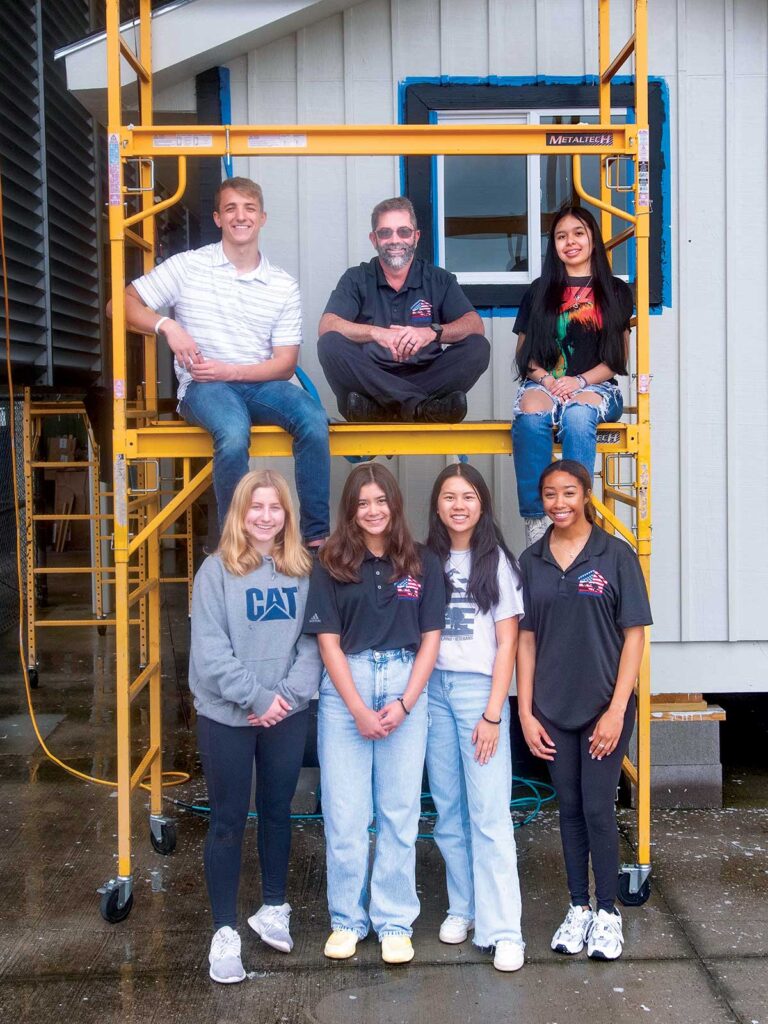
Instructor James Gaylord and his Humble students in front of a tiny home they built.
Laura Jenkins
“And that’s when Miss Barbara took me in,” he says after an emotional pause. “Now I’m safe. I’m sober. And everything I need to get healthy again is right here.”
Barbara Lange gave Phillips, 54, the key to a tiny home at the Langetree Retreat and Eco Center near Liberty, between Houston and Beaumont. But she’ll be the first to tell you that she’s only one of many who are making Phillips’ recovery possible.
“Somehow we all got the memo independently of one another,” Lange says. “And then somehow we all found each other. What are the odds?”
There was no actual memo, of course. But indeed, several people in the same corner of Texas had a similar idea around the same time.
At the outset, none of them knew each other—or even about each other. They were simply focused on the same goal: to support veterans by providing them with tiny homes. Their collaboration has no name. There’s no one in charge. But it has yielded something much greater than the sum of its parts.
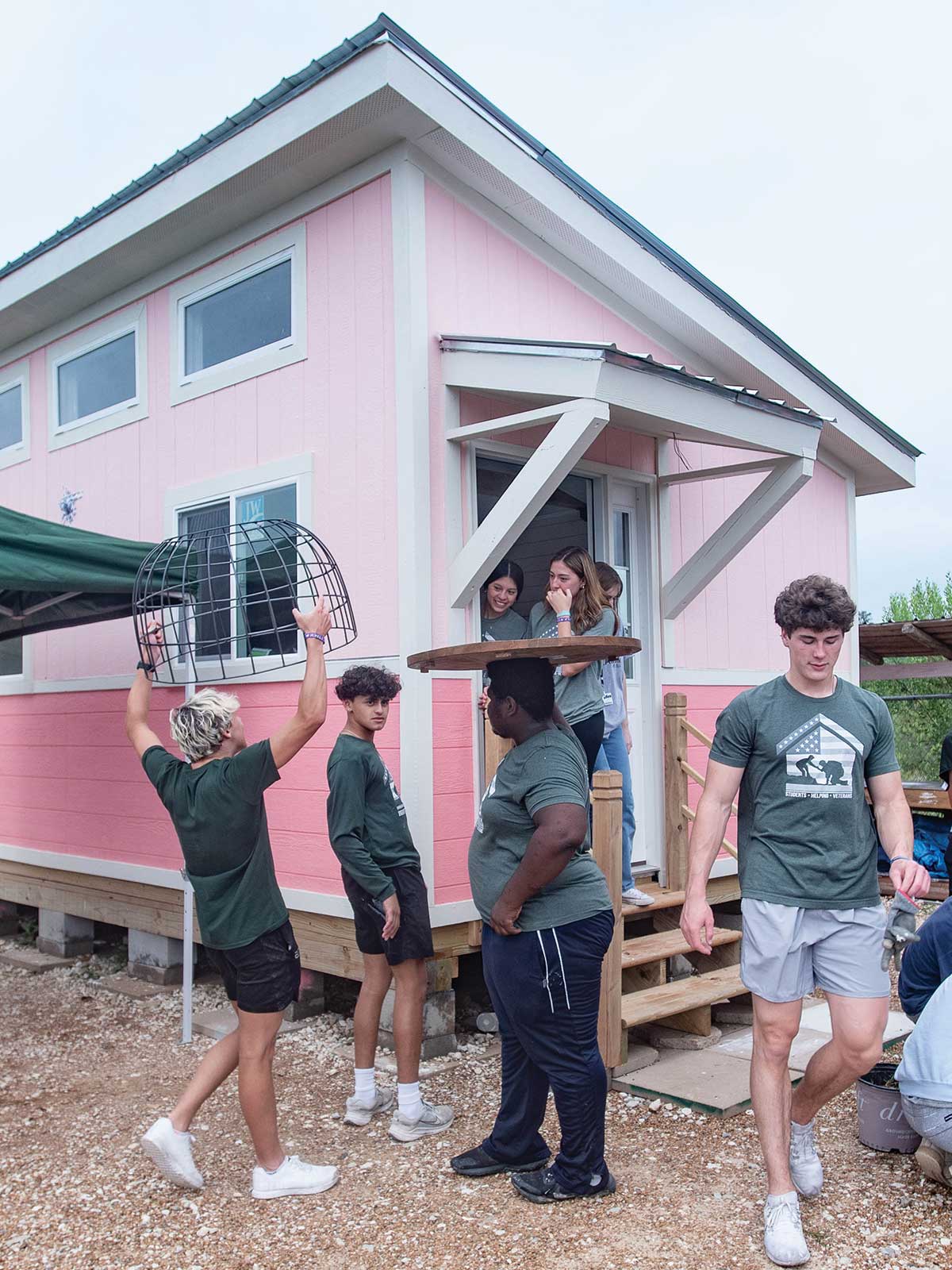
Kingwood Park High School students work on a tiny home.
Laura Jenkins
Humble Beginnings
Allen Segura, who recently retired as assistant principal and director of career and technology education for Summer Creek High School, says the idea to integrate building tiny homes into the Humble school district’s curriculum came from a bout of insomnia in 2018.
“Late one night I was scrolling through Facebook and saw some people in St. Louis who were building tiny homes for homeless veterans,” Segura remembers. “And the simple thought came: ‘I wonder if our students could do that?’ ”
He bounced the idea off James Gaylord and Missi Taylor, who teach CTE classes in construction, architecture and design at high schools in Humble, a Houston suburb whose name is pronounced “Umble.” They were in.
“We had been teaching these classes for years, but it was mostly theoretical,” Segura says. “Actually building houses would not only let them put what they’re learning into practice, it would also help them understand the importance of serving others.”
Under the supervision of the three educators, the students developed a presentation and pitched it to Superintendent Elizabeth Fagen, who took it to the school board for approval. Thus, in 2018, Humble ISD’s Big Heroes, Tiny Homes program was born.
Safe Haven
Meanwhile, about 40 minutes east of Humble, Lange, a retired social worker, was teaching leadership and environmental sustainability at the retreat center she and her husband built in 2004.
Their doors have always been open to people in crisis. They housed numerous people after Hurricane Katrina’s devastation in 2005. They took in referrals from Tri-County Behavioral Healthcare, a community-based nonprofit serving those living with mental illness and intellectual disabilities. More recently, Lange had begun working with several Veterans of Foreign Wars chapters in an effort to address the crisis of homelessness among veterans.
“I had already started converting a shipping container into a tiny home for one of the veterans I was assisting when I came across a newspaper article about Missi,” Lange remembers. “A VFW volunteer named Mark Bowen said, ‘Barbara, why don’t you go to Kingwood Park and tell those people that they can give us the houses?’ ”
Never one to leave a stone unturned, Lange went to visit the teachers in Humble. Once they saw her vast experience and her devotion to veterans, the district agreed to donate their tiny homes to Lange’s effort.
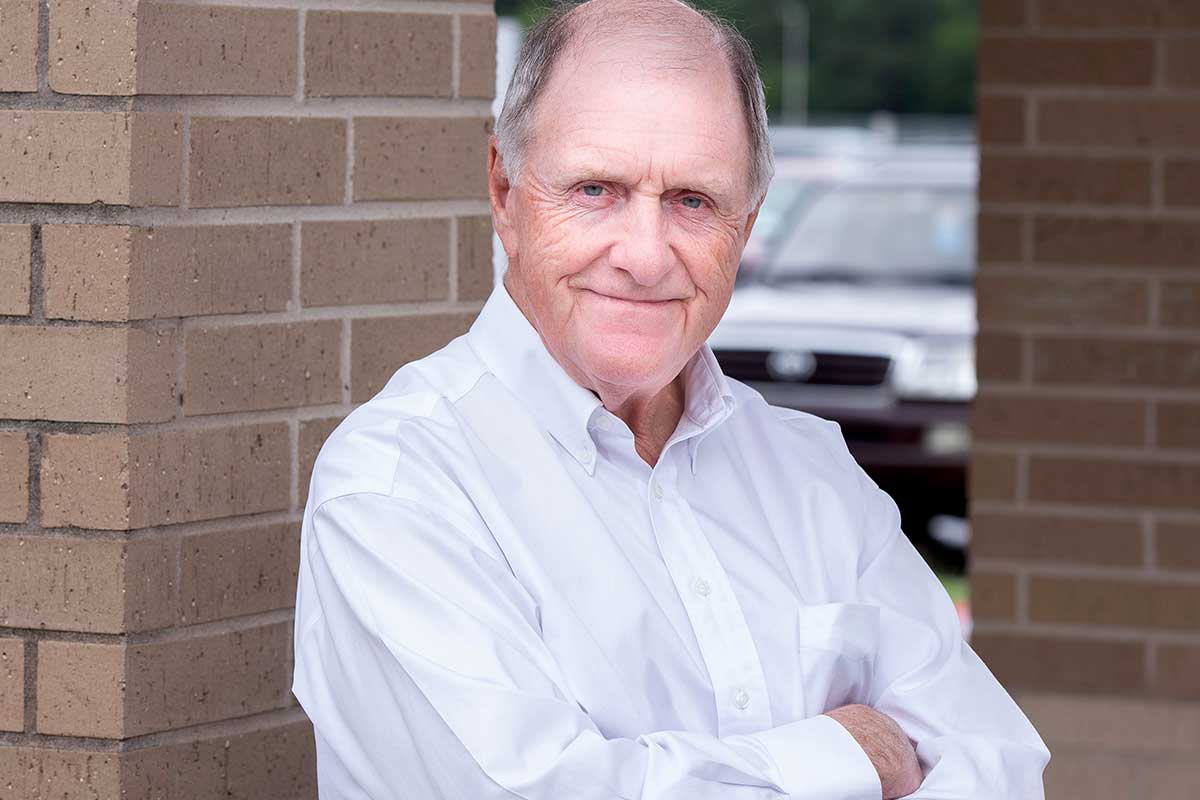
Allen Segura, who recently retired as assistant principal and director of career and technology education for Summer Creek High School.
Laura Jenkins
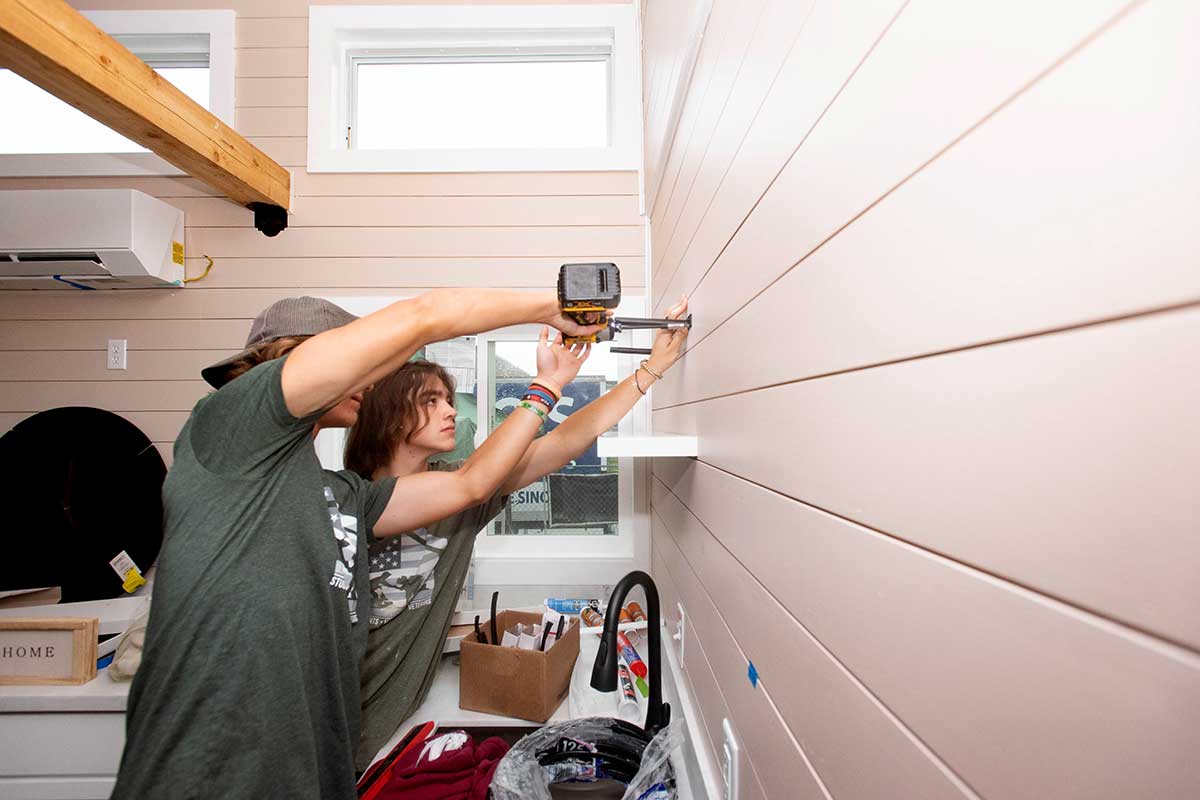
Kingwood Park students put the final touches on a home.
Laura Jenkins
Power Source
Since 2005, Operation Finally Home has been improving and constructing mortgage-free homes for wounded veterans, first responders and their families. But it wasn’t until spring 2020 that Lee Kirgan, vice president of project management for OFH, learned about Humble ISD’s big idea and suggested to President Rusty Carroll that they consider getting involved.
Six months later, Carroll surprised Segura with the news that OFH, based in New Braunfels, had secured a grant from big-box retailer Lowe’s, which would provide all the building materials for Big Heroes, Tiny Homes for the foreseeable future.
“Humble ISD had a vision to build tiny homes for homeless veterans, but they didn’t have a sustainable way to source the materials,” Carroll says. “By partnering them with Lowe’s, we were able to lengthen their runway.
“People have been telling me for years that they wanted to build tiny homes for homeless veterans, but if they’re transitional, there has to be some sort of infrastructure to support those living in them. Barbara supplied that missing piece.”
Lange’s infrastructure is deeply rooted in community. There are currently 10 tiny homes on her property and 27 agencies providing residents with such services as job coaching, counseling, legal aid and palliative care.
But creating a communal environment is one of her highest priorities. When she conveyed that to the people at OFH—who are helping her clear and prepare her land to receive 20 more houses over the next five to seven years—they recommended putting them in pods of six, which will serve as micro communities.
“We now know from a scientific point of view that loneliness can be as harmful to the body as cigarette smoking,” Lange says. “When you’re in a community of people who’ve been where you’ve been, when you’re living with others who are going through what you’re going through, you’re less likely to feel like a freak.
“It advances the healing process.”
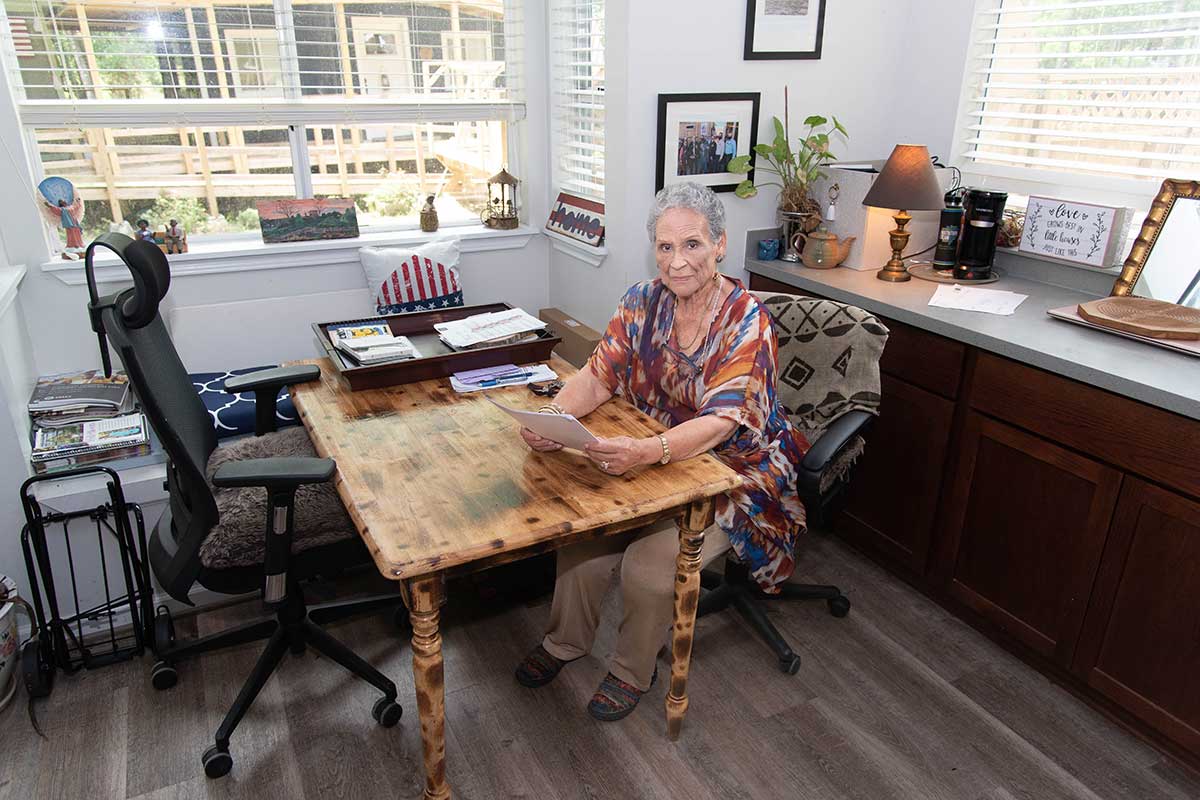
Barbara Lange’s retreat center includes 10 tiny homes and representatives from 27 agencies that provide residents with such services as job coaching, counseling, legal aid and palliative care.
Laura Jenkins
Humble ISD is expanding Big Heroes, Tiny Homes to five high schools. The program offers students a hands-on building experience with mentoring by professionals—architects, plumbers, electricians, general contractors—giving the teens invaluable work experience and the opportunity to explore various career paths.
Due to its resounding success, other school districts and universities have reached out to Humble ISD to find out how the project works.
“Our instructors are willing to talk to your instructors,” Segura says. “We are happy to connect your principals to our principals, your superintendent to our superintendent. Let us tell you how we did this.”
Lange estimates that most residents will transition into permanent housing within two years. Phillips, who is approaching that milestone, may stay longer because he’s become a strong leader in the community. Though he now has a job as a heating and air conditioning tech, he serves as a liaison and an advocate for the other veterans. He also assists with some of the property’s maintenance and administrative needs.
“Veterans aren’t homeless because they’re not gifted, intelligent or experienced,” Lange says. “They are broken. When you connect them with the resources they need and provide a safe place to heal, many will find their way back to the person they were before the trauma. All veterans deserve that chance.”
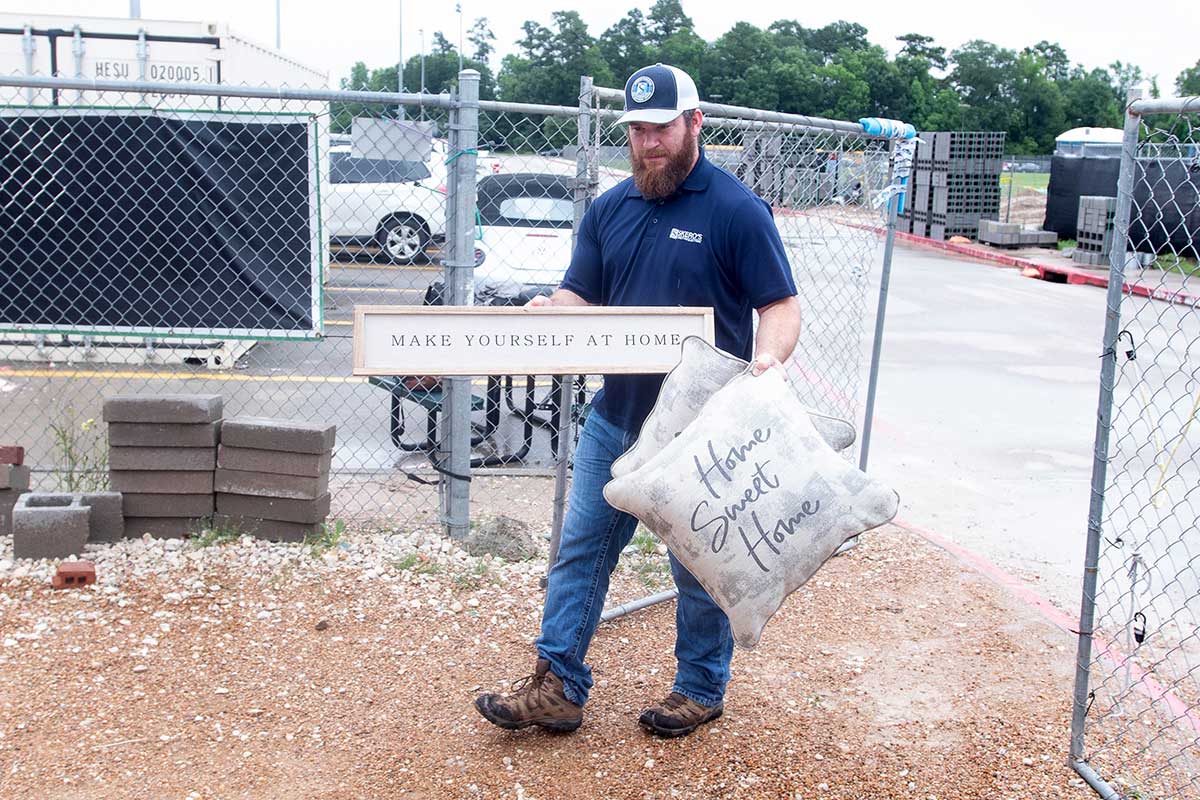
An employee of Skero’s Furniture & Mattress delivers donated furnishings to a tiny house at Kingwood Park High School.
Laura Jenkins
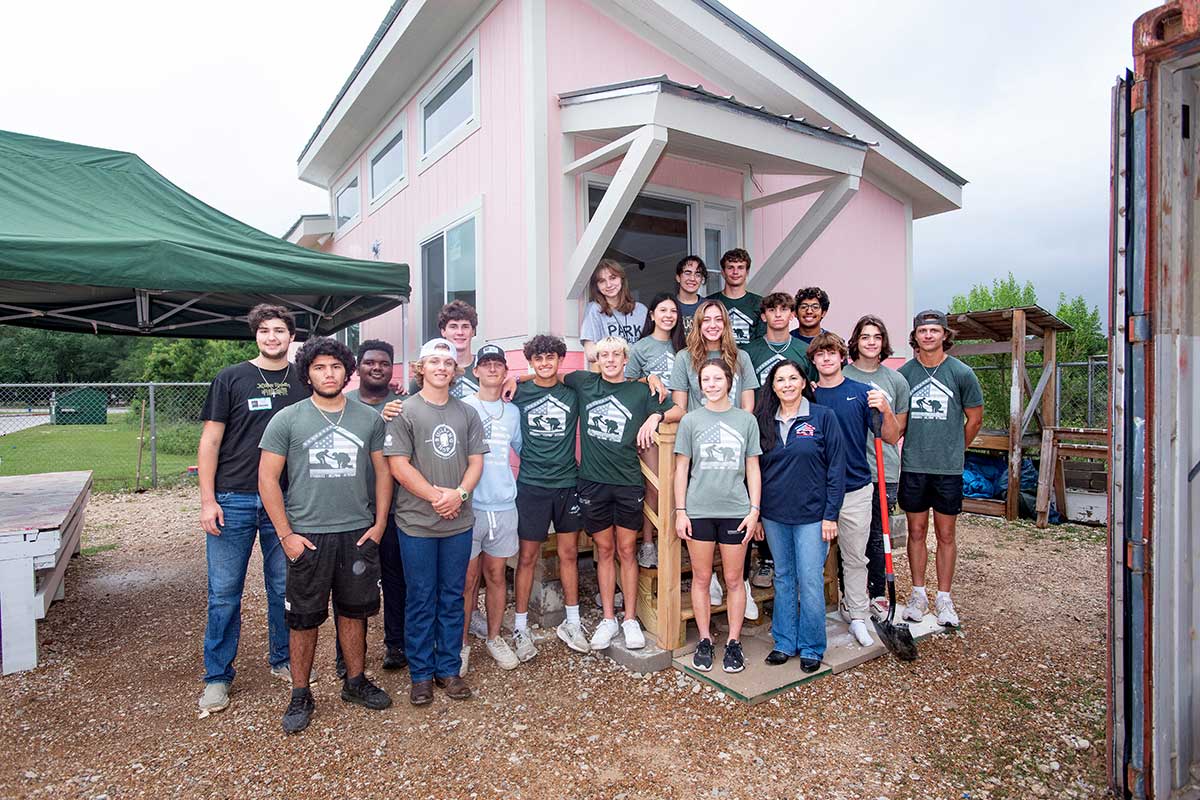
Kingwood Park High School students in front of the tiny house they built.
Laura Jenkins
